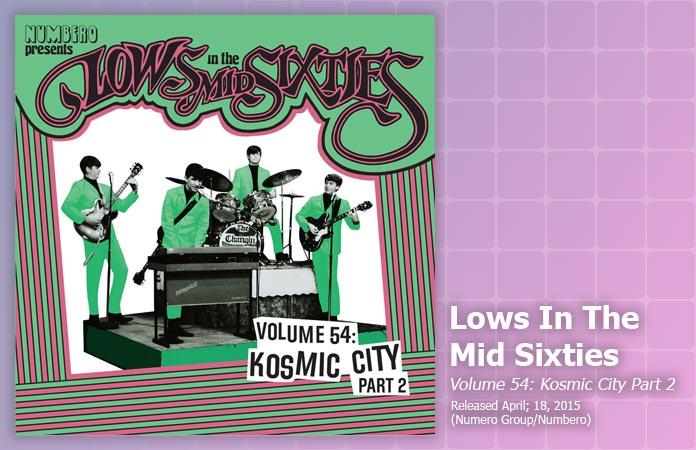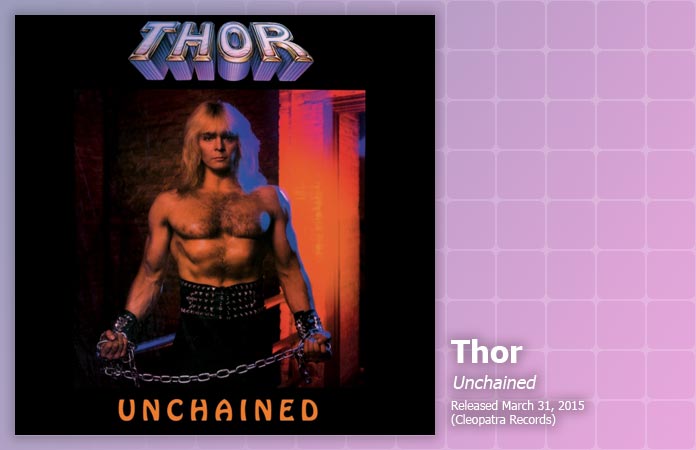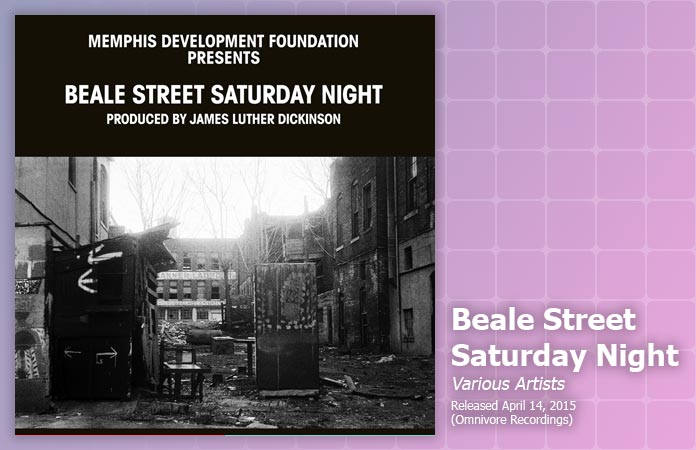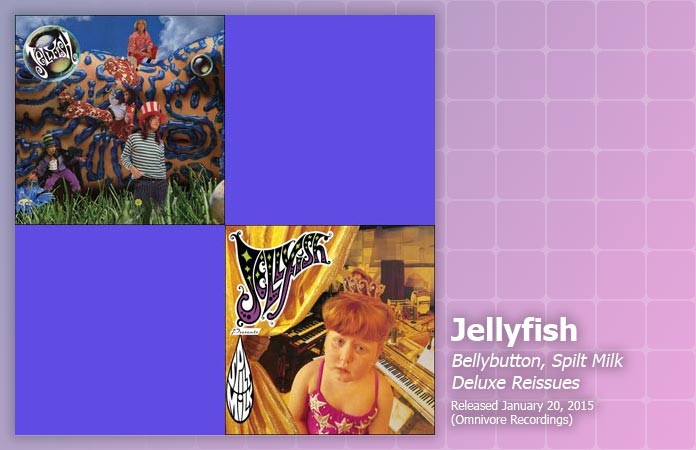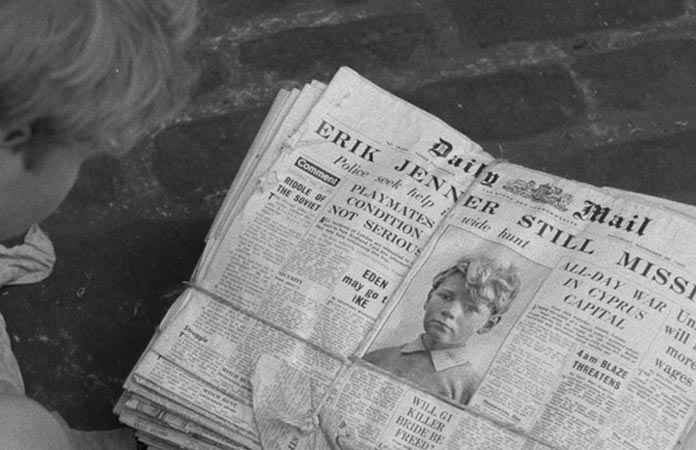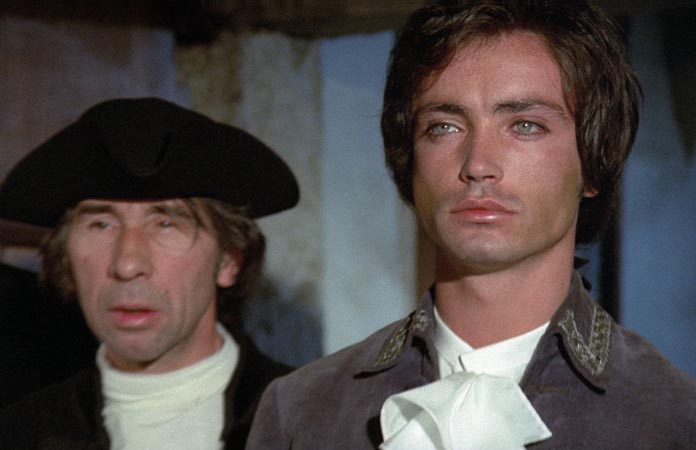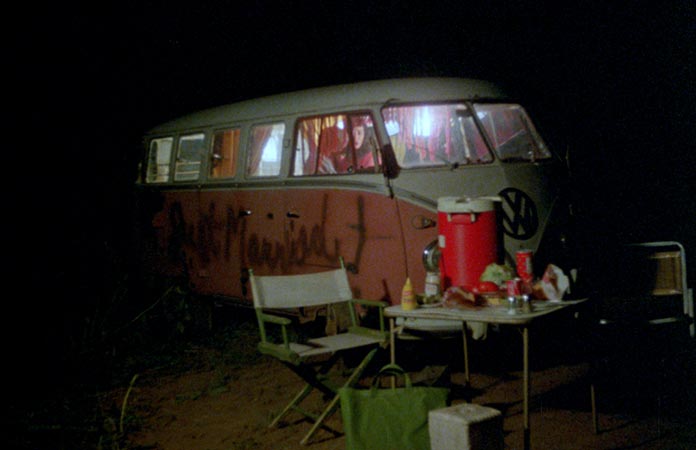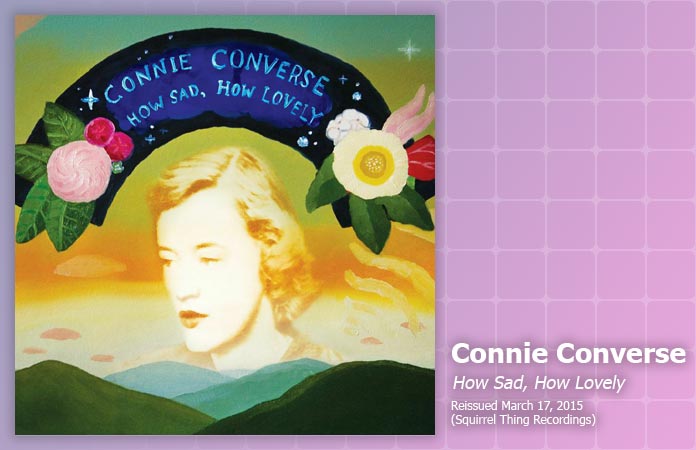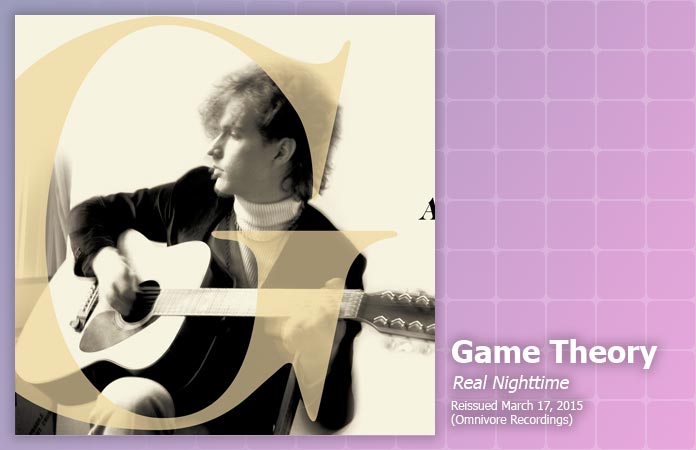Music Review: Lows In The Mid Sixties, Volume 54: Kosmic City Part 2
Published on April 17th, 2015 in: Culture Shock, Music, Music Reviews, Reissues, Retrovirus, Reviews |Who doesn’t love Record Store Day? Piles of picture discs, odd singles, repressings of things you’ve always wanted but couldn’t shell out the car payment-prices for on Ebay. Numbero (an offshoot label of the amazing Numero Group) is releasing Lows In The Mid Sixties, Volume 54: Kosmic City Part 2, on vinyl for Record Store Day 2015, and it is . . . odd.
Music Review: Thor, Unchained Deluxe Reissue
Published on April 17th, 2015 in: Canadian Content, Current Faves, Music, Music Reviews, Reissues, Retrovirus, Reviews |By Tim Murr
There are so many sub genres in heavy metal that black metal progenitors Mayhem stand under the same umbrella as pop glamsters Poison. Which is kind of cool when you think about it. There’s so much that you can do with metal, so many styles you can mix in, so many identities that exist shoulder to shoulder.
Music Review: Various Artists, Beale Street Saturday Night
Published on April 17th, 2015 in: Current Faves, Music, Music Reviews, Reissues, Retrovirus, Reviews |Beale Street Saturday Night is a historical document that you could dance to, if you were so inclined. In 1976, James Luther (Jim) Dickinson (who played with loads of people, from the Stones to the Cramps, and produced Big Star, The Replacements, et al) set out to document the music and the musicians that played on the storied street where rock and roll arguably began. He recorded blues musicians at home, at clubs, and at the Orpheum theater, creating a sonic trip with spoken reminiscences from the artists cut in to their songs. The resulting album, Beale Street Saturday Night, was released in a limited run in 1978 and fetches astounding prices for original copies.
Music Review: Jellyfish, Bellybutton and Spilt Milk (Deluxe Reissues)
Published on April 3rd, 2015 in: Current Faves, Music, Music Reviews, Reissues, Retrovirus, Reviews |Like Big Star before them, Jellyfish developed a cult-like fandom that’s far exceeded not only their rather limited output, but also their impact on music charts. Omnivore Recordings, who recently released the soundtrack to the Big Star documentary Nothing Can Hurt Me, has now given the same loving treatment to the Jellyfish legacy with two new reissues of their studio albums—1990’s Bellybutton and 1993’s Spilt Milk—that include a ton of sensational extras, like 51 bonus tracks, full color gatefold sleeves with rare photos, two essays by Ken Sharp, and song-by-song commentary on the original albums from Andy Sturmer, Roger Manning, and Jason Falkner.
Blu-Ray Review: The Weapon
Published on April 3rd, 2015 in: Blu-Ray, Current Faves, DVD/Blu-Ray Reviews, Movie Reviews, Movies, Reissues, Retrovirus, Reviews |As I’ve been going through the movies that Olive Films has reissued, I’ve been finding some that are truly unique, amazing, and kind of unknown. One of these is called The Weapon.
Blu-Ray Review: Mark Of The Devil
Published on March 20th, 2015 in: Blu-Ray, Culture Shock, Current Faves, DVD/Blu-Ray Reviews, Horror, Movie Reviews, Movies, Reissues, Retrovirus, Reviews, Underground/Cult |The original German title of Michael Armstrong’s infamous Mark Of The Devil was Hexen bis aufs Blut gequält, literally translated into Witches Tortured Till They Bleed. It’s a horrifying, yet accurate title for a movie that contrasts lush scenery and exquisite period costumes with some of the most excruciating scenes of torture ever put on film.
Blu-Ray Review: Don’t Go Into The Woods
Published on March 20th, 2015 in: Blu-Ray, Current Faves, DVD/Blu-Ray Reviews, Horror, Movie Reviews, Movies, Reissues, Retrovirus, Reviews |My mom and I watched horror films consistently all through the years of my youth. My mom wasn’t a horror buff, but was really into slashers, so naturally I was as well because I soaked up whatever she would show me. Almost every night we would go to my room and watch at least one film and I would stay up late to make it a double feature. (To this day she will come over to my place and we will either watch a classic or I will show her something new I’ve discovered.)
SXSW Movie Review: Roar (1981)
Published on March 20th, 2015 in: Film Festivals, Movie Reviews, Movies, Retrovirus, Reviews |The idea that Roar was even made blows my mind because of the fact that there was a surplus of dangerous animals among the cast and crew while it was being filmed.
Music Review: Connie Converse, How Sad, How Lovely
Published on March 20th, 2015 in: Current Faves, Feminism, Music, Music Reviews, Reissues, Retrovirus, Reviews |The story of Connie Converse is both fascinating and distressingly common. After leaving college and heading to New York City in 1949, she wrote and recorded poetic, wry, revealing songs accompanying herself on acoustic guitar. Despite intervention and best intentions of friends (animator Gene Deitch and colleague Bill Bernal) who worked to get Converse’s music heard by a wider audience, she abandoned everything. She wrote a series of goodbye notes to friends, packed up her Volkswagen, and disappeared in 1974. No one has heard from her since. She would be 90 now.
Music Review, Game Theory, Real Nighttime
Published on March 20th, 2015 in: Current Faves, Music, Music Reviews, Reissues, Retrovirus, Reviews |The earlier Game Theory EPs gave us a Portrait of the Artist as a Young Band. As the band tried on and discarded aesthetic approaches and made basement recordings on less than ideal equipment, a musical persona began to emerge: sunny Californian pop with fillips of experimentation and flashes of intelligence, pitting melancholy lyrics against jangly melodies. On Real Nighttime, the band’s first official LP, Game Theory’s sound comes into sharper focus.
